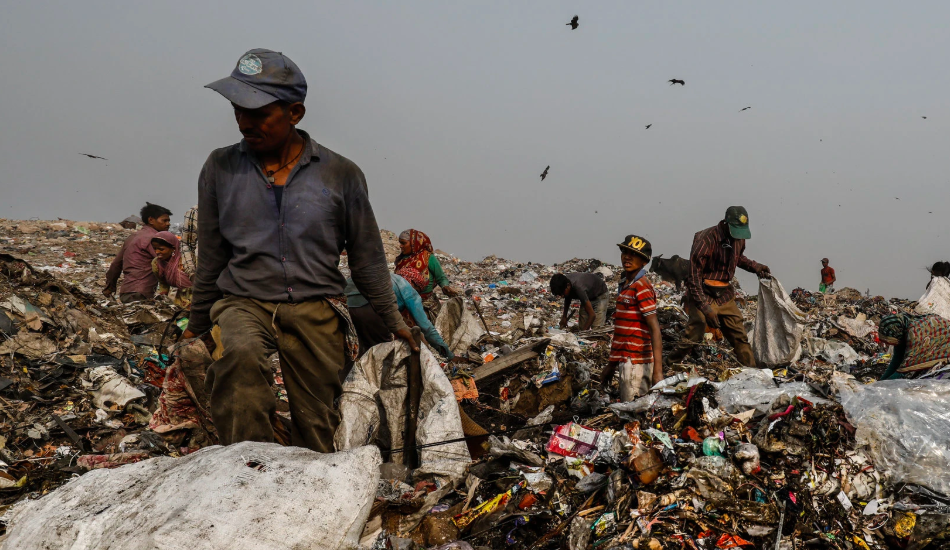
A mound of garbage at a landfill in Delhi Photo: Saumya Khandelwal for The New York Times
The 186 nations who are a party to the United Nation’s Basel Convention on solid waste concluded a historic agreement late Friday that will require countries to monitor and control the movement of plastic waste between national borders in order to deal with the world’s plastic crisis. Unfortunately, the United States was not involved in the negotiations or the final agreement because it is one of just two countries that has not ratified the Basel Convention.
- Until 2018, the U.S. had sent its plastic waste to various countries such as China and Malaysia, but now those countries reject U.S. used plastic exports because they had no way to recycle the huge amounts of plastic flooding through their borders.
- Other countries that were initially willing to take the U.S.’s trash — like Thailand, Vietnam, and India — now are also taking steps to restrict the import of foreign plastic waste.
- As a result, there is a huge amount of trash backing up in the U.S., which has left full shipping containers abandoned in U.S. ports with nowhere to go and trash piling up outside major cities or being trucked to landfills that are quickly filling.
The agreement impacts the products of many industries, such as health care, technology, aerospace, fashion, food, and beverages. The entire agreement was negotiated and concluded within only 9 months, and Norway’s government led the effort. And it is a legally binding agreement — which makes it all the more remarkable. In all countries that have signed on, customs agents at the border will lookout for electronic waste or other types of potentially hazardous waste, and the whole global system will be more transparent and traceable.
Why This Matters: We did not help to make rules, but we cannot escape them — these restrictions will still apply to the U.S. as it tries to find other countries that will accept the mountains of plastic disposed of each day in the U.S. “It’s sending a very strong political signal to the rest of the world — to the private sector, to the consumer market — that we need to do something,” according to a U.N. official. “Countries have decided to do something which will translate into real action on the ground.” One million people across the world signed a petition calling for this agreement because they are fed up with the 100 million tons of plastic that scientists estimate can now found in the world’s oceans, up to 90% of which comes from land-based sources,
May 12, 2019 » Basel Convention, oceans, plastic, recycling, trash, United Nations


